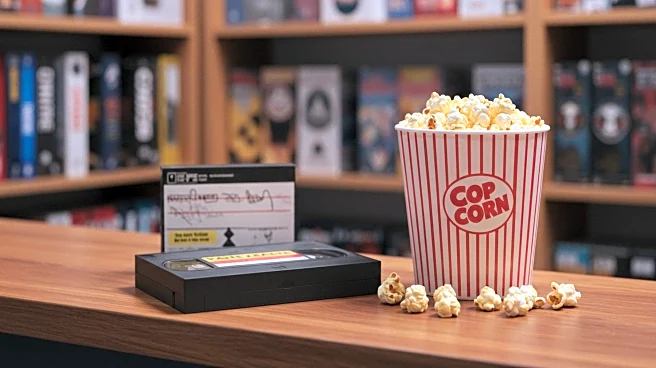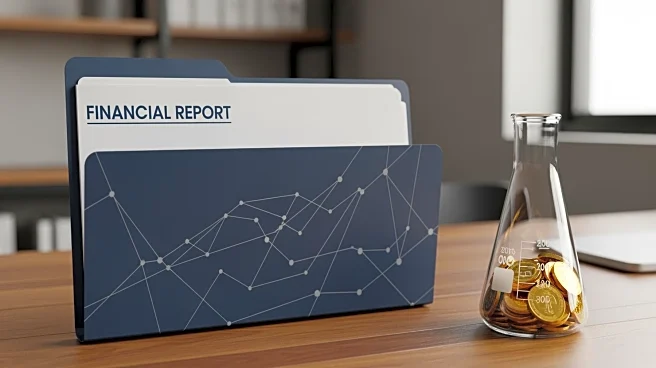What's Happening?
Matthew Renoir, the great-great-grandson of Impressionist painter Pierre-Auguste Renoir, has opened a video rental store named Be Kind Video in Burbank, California. Despite the dominance of streaming services, Renoir's store offers over 12,000 titles on VHS, DVD, and Blu-ray, catering to a niche market of physical media enthusiasts. The store is designed to evoke nostalgia, featuring wood paneling from the 1980s and a vintage Nintendo setup. Renoir, who has a background in cinematography and real estate drone footage, was inspired by childhood memories of video rental stores. His venture reflects a growing interest in analog experiences, similar to other businesses like typewriter repair shops.
Why It's Important?
The opening of Be Kind Video highlights a counter-trend to digital streaming, emphasizing the value of physical media and nostalgia. This move could signal a shift in consumer preferences, where people seek tangible experiences and the discovery aspect of browsing physical collections. It also underscores the potential for niche markets to thrive despite broader industry trends. Renoir's store may inspire similar ventures, contributing to a diverse retail landscape and offering an alternative to the algorithm-driven selections of streaming platforms.
What's Next?
Renoir plans to expand Be Kind Video, potentially doubling its footprint, indicating confidence in the store's appeal and market demand. The store's success could encourage other entrepreneurs to explore similar ventures, fostering a community around physical media. As streaming services continue to dominate, Be Kind Video's growth may challenge the perception that physical media is obsolete, potentially influencing industry practices and consumer habits.
Beyond the Headlines
Renoir's venture raises questions about the cultural significance of physical media and its role in preserving film history. The store's existence challenges the notion that digital access equates to comprehensive availability, as many older films remain inaccessible online. This highlights the importance of physical collections in maintaining cultural heritage and providing diverse viewing options.









